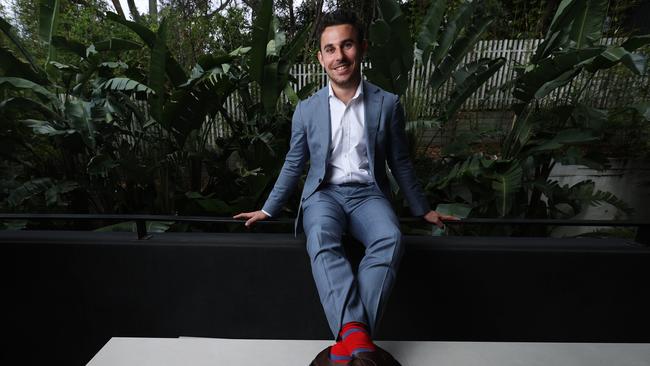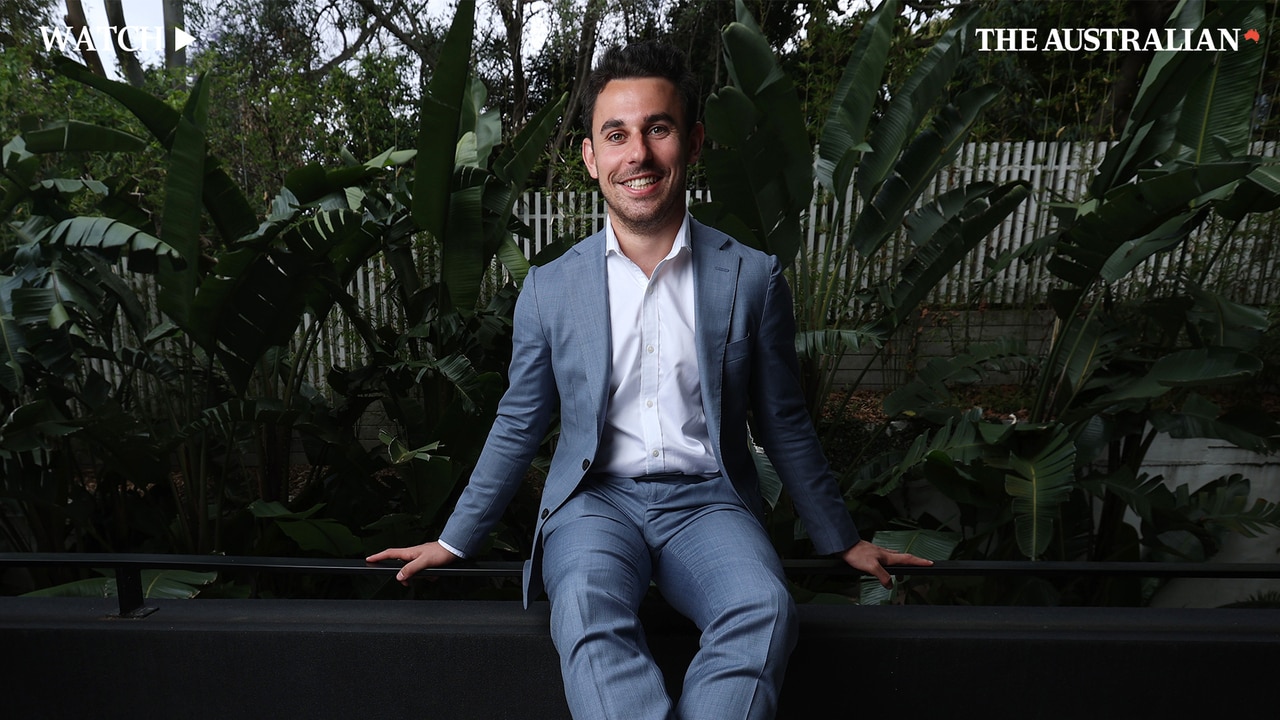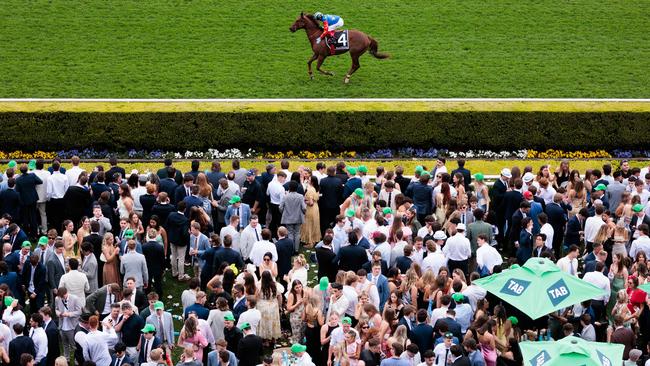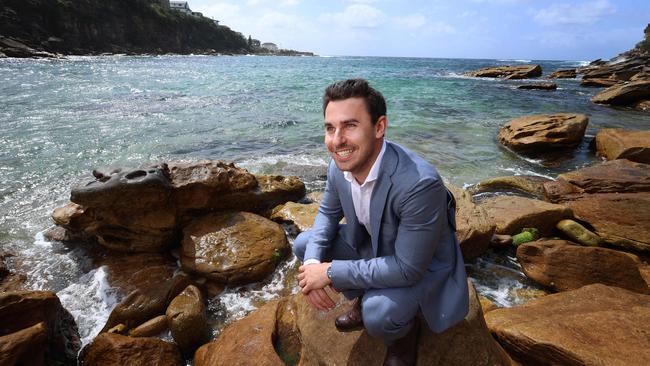Is Benny Scarf the most controversial identity in horse racing?
The 23-year-old has whipped up a social media frenzy around his betting stunts on Instagram but behind it is a business strategy to get as much attention as possible and for the money to follow.

A 23-year-old with about six months’ business experience might just be the biggest
Meet Benny Scarf, the young Sydney racing tipster and content creator whose social media following dwarfs bookmakers and racing identities, and seems to have single-handedly created more interest in the sport than anyone else in recent years.
It might just make him the most important person in racing right now.
And thanks to his canny (and controversial) connections to the betting industry, Scarf is on his way to being one of its top earners.

Scarf runs his own betting tips service but more importantly has an Instagram account with almost 200,000 followers who love his irreverent punting stunts.
That’s double the following the country’s biggest bookmaker, Sportsbet, has on Instagram (it has 126,000 on X, formerly Twitter). Tabcorp’s TAB brand has almost 32,000 Instagram followers, star jockey Jamie Kah about 42,000 and trainer Chris Waller 37,000.
Scarf gets recognised by dozens of young spectators every time he goes to Royal Randwick racecourse, including last weekend’s huge Everest meeting in front of a 49,117 capacity crowd – full of the 18 to 35-year-old male demographic which love Scarf’s work and is the target audience for bookmakers.
Scarf lists his job title as “God of Punt” on LinkedIn and, almost unbelievably, has reached that 200,000 follower mark in just six months.
“It hasn’t been easy,” he jokes.

Scarf has whipped up a frenzy of interest from his social media work, which mostly revolves around putting on bigger and bigger bets, and shooting entertaining videos of him cheering on his horses to victory or theatrically lamenting a defeat.
He spends 5c for each Instagram followers on his bet of the day, a sum that reached $9850 this week on what was eventually just a placegetter at Warwick Farm that caused Scarf to melodramatically mourn its defeat.
In a cost-of-living crisis, when betting is down at least 10 per cent in the past year, Scarf appears to have sparked interest in the sport among younger social media-savvy betting enthusiasts.
And given his connection to fast-growing social media bookmaker Dabble, Scarf is being rewarded handsomely.
So, Is he good for racing?
“100 per cent. Everest sold out for the first time ever this year. I’m not fully responsible for it, but you’d be naive to say I had nothing to do with it,” Scarf says confidently.
“Even if you don’t like me, even if you think I’m terrible for racing, you’re talking about racing. So as far as I’m concerned, I’ve done my job.”
But, like a new horse that has burst into contention this spring and quickly captured the public’s imagination, can Scarf and his brand maintain momentum and relevance?
In an interview with The Weekend Australian as the spring racing carnival nears its peak with next month’s Melbourne Cup, Scarf reveals the inspiration behind his branding strategy, his plan to eventually move to the US and why he has quickly attracted such a big following.
It all comes down to, he says, how a modern business makes customers aware of what they are doing.
“People always ask the wrong question. They ask, How do I make money? But the question they should ask themselves is, how do I create attention?” he says.
“You can have the greatest product in the world, but if no one sets eyes on it, they’re not going to buy it. Social media is the greatest vehicle to create attention in 2024.
“What I do is completely authentic. People want to say that I cancel my bets or it’s not my money. I think people can intuitively tell whether someone’s being themselves or when someone’s not.
“I’m absolutely myself. It might be a bit exaggerated but if you’ve got $10,000 on a horse, try not carrying on (like I do)”.
Scarf grimaces at the suggestion he’s an influencer, but the almost 200,000 Instagram followers consuming his irreverent and entertaining content likely means he is.
“I’d rather ‘content creator’ or ‘entrepreneur’,” he says with a smile.
“Influencer makes me feel like I’m a girl on Tiktok dancing or something like that.”

Whatever tag is applied, Scarf is also likely making big money very quickly, given he has what is known as an affiliate deal with Dabble.
A link on Scarf’s Instagram account takes a potential customer through to Dabble’s website to sign up for a betting account and Scarf receives a clip of that punter’s earnings (or losses) for the bookmaker along the way.
Affiliates essentially are online marketers which drive online traffic or customers to betting companies. Some estimates have put affiliates as being at the source of at least 10 per cent of some bookmakers’ revenue.
It means Scarf is essentially a gateway to new and younger customers for Dabble, which is one of the few bookies increasing its share in what is currently a falling market. There’s also controversy as to whether affiliates like him are promoting gambling too much.
“The overwhelming majority of my pay comes from sign-ups. Ultimately I am incentivised to win and for my bets to win 100 per cent. People want to talk about how I make money on how many people copy my bets. That is untrue,” Scarf says.
“I like to keep the mystery, though, because it adds to my engagement. The question of where the money is coming from does nothing but boost my profile so I keep it up in the air and it adds to the theatre of it.”
Dabble has also found success with a function on its app that allows customers to copy and place bets from others, whether it is their friends or characters like Scarf.
He says that has driven a theory that he purposely promotes losing bets, but Scarf claims that he makes 10c per copy on all bets, which is capped at $1000 per week.
“Everyone on Dabble is entitled to this though so it is hardly groundbreaking,” he says.
Yet given his following and Dabble’s fast growth – it is targeting 50 per cent revenue growth each year until at least 2027 – it is likely that Scarf is a big earner potentially taking home hundreds of thousands of dollars or more.

Scarf runs his own race tips business that emails its choices to customers each Wednesday and Saturday for a $29 weekly package.
That means crunching data – “if you’re not data driven these days you will fail” – with a couple of analysts who work behind the scenes.
Scarf’s interest in gambling comes from his father, who he says was a professional punter from the late 1970s until about 2000, although given he treated it as a job he has not set foot on a racecourse since.
There have also been two other influences.
One is Tim Myers, a New Zealander on Instagram known as “Tim Naki”, who earlier this year started betting 10c on a blackjack hand for every follower he had which is also captured on irreverent videos.
Myers got to day 91 and 1.3 million followers by the time he stopped the streak. He now has a promotion deal with Racing Victoria’s Racing.com this spring.
Scarf admits he has basically lifted his strategy from Myers.
Then there is one-time Rich Lister Simon Beard, the founder of Culture Kings who Scarf cites as a big influence when it comes to marketing and promotional strategies.
“He (Beard) said something I found really interesting: Ten or 15 years ago you could just tell a marketing agency to do it all and pay the figure. Nowadays, founder-led content is everything, because you can’t just buy it,” he says.
“You have to be authentic. It has to be congruent. It has to be cut through, and you can’t put a dollar figure on it. And it’s something that money can’t buy. I took a lot from that.”
Scarf is set to rack up his 100th 5c bet on Melbourne Cup day on November 5, but admits to at times struggling to come to grips with the rise of his profile.
“People will say just the most disgraceful stuff online to me. And then I’ve never had a negative interaction with anyone at the races in real life with anyone. So it can be different,” he says.
“But I said to Dad the other day this is so hard and I don’t know what to do (in the future). And he said, ‘you’ve chosen to play State of Origin football, and now you’re complaining that the tackling is too hard’. It’s a good point.
“People are going to rip you to shreds regardless, so you may as well just embrace it. You may as well even have fun with it.”
When asked if that means he might quit soon, Scarf laughs and says he will “tough it out”.
As for what really is next, Scarf says the place where influencers first made their mark, and where online gambling is rapidly growing, could be calling.
“The US pays their creators for creating content. That’d be awesome. If I’m not living in the US at some point in the next decade, I’d be very surprised. I think that is where my proper future lies.”


To join the conversation, please log in. Don't have an account? Register
Join the conversation, you are commenting as Logout